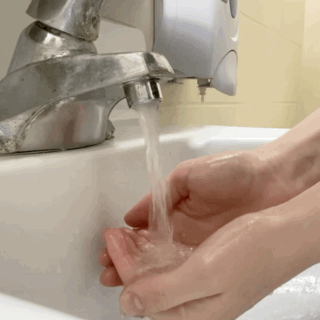A lot of events and activities have been canceled the last few months because of COVID-19. But Illinois 4-H is keeping kids busy. Their shows are still happening this year even though judges can't see the livestock, taste the pies or watch the presentations in person.
A typical 4-H livestock show happens at the county fair, where the kids are able to present their animals live in front of judges. But this year is anything but typical. Like every organization, 4-H has had to adjust how they do things.
Margaret Larson said, “So we're hoping to not miss a beat in terms of 4-H." Larson is the county director the University of Illinois Extension for Jo Daviess, Stephenson and Winnebago Counties. She also oversees their 4-H programs. She said the shows are an important part of 4-H, because they give kids an opportunity to present the projects they’ve been working on in front of an audience and get feedback from judges. In order to keep doing that during the pandemic, the shows have all shifted to a virtual format.
“We feel very fortunate that we're able to offer the 4-H community a chance to continue with their project work and to show their project and be judged," she said, "It's a very positive way for the 4-H members to get feedback and continue to grow in their project areas.”
Becky Gocken is program coordinator for Jo Daviess, Stephenson and Winnebago Counties. She said kids in 4-H have been working on their projects all year. Typically, presentations happen in the summer and they're live. But this year, they have to be submitted through an online platform.
“4-H decided that these kids have had enough disappointments," she explained. "So many things have been taken from them. So many things have been canceled, but 4-H wanted to keep going on and show these kids and their families the support system is still there for them. The work they have done is still going to be appreciated and shown, just in a different format.”
And that different format means some significant changes to how the projects are presented.
Gocken explained, “The livestock shows are muted during their videos because they are not supposed to be speaking so that they're not influencing the judge by having somebody in the background talking about, ‘what a wonderful steer this was,’ and this and that.”
Other projects, of course, need sound. Like a winning public speaking entry by Michelle Marck.

“So what about you? Have you ever bullied someone?" Marck asks in an entry filmed and submitted for the judges earlier this year. In her video, she gestures and speaks passionately. She's performing an excerpt from "I Am Not a Bully" by Ken Bradbury. "Have you ever done nothing when you knew someone needed a friend? Ever been afraid of what people would think if you stood up for somebody who needed help…”
Others have not translated quite as easily to an online experience.
“I would say probably the most challenging show would probably be the cooking," said Gocken. "Just because our judges cannot taste the food this year. That doesn't work virtually. So what they've done is for the cooking, they have to have specialized photographs requirements... and then the recipe and things and then they would also fill out a one-page project report.”
A project report supplements questions the judges would ask during a live presentation. This year, the judges are working from home, accessing the videos, photos and reports online.
Larson said 4-H is still figuring out exactly how, but that projects will be available for public viewing. And the kids and families involved have been thankful for the work they’ve put in so far to keep things going. One local 4-H club even had a new family join... after the shutdowns due to COVID-19 began.
Gocken said, “I guess when the pandemic happened, they decided, you know, they need their kids to be a part of something, and accepted around something... and they just felt that during this time that was going to be really important.”
So while things might look a little different this year, 4-H is making it work. You might not be able to hear the livestock this year, but the kids in 4-H still get to participate, learn and present the fruits of their labor.


